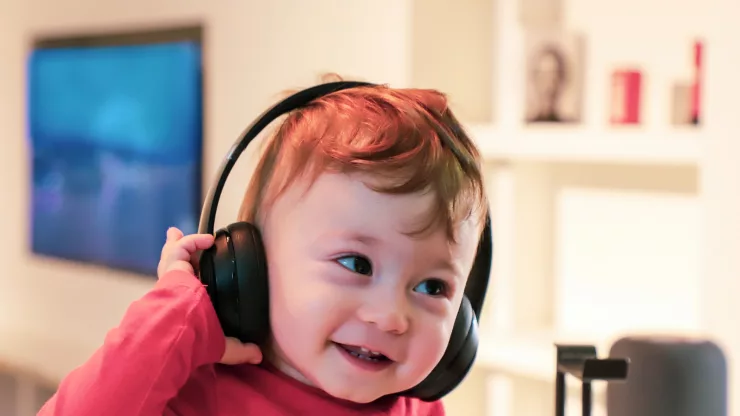The Healing Harmonies: How Music Nurtures Happiness and Well-being
Music has the power to touch our souls, lift our spirits, and bring us together. It is a universal language that transcends borders, cultures, and beliefs.
But did you know that music can also heal our bodies and minds?
From reducing stress and anxiety to improving cognitive function and memory, music has been shown to have a profound impact on our health and well-being.
In this article, we will explore the science behind the healing power of music and how you can use it to nurture your happiness and well-being.
Jump to Section
The Power of Music: Why It Matters for Your Health
Music has been an integral part of human culture for thousands of years. It has been used for entertainment, religious rituals, and healing practices.
Today, we have scientific evidence to support the therapeutic benefits of music. Studies have shown that listening to music can reduce stress, anxiety, and depression, lower blood pressure and heart rate, and improve sleep quality and immune function.
Music also has the power to evoke emotions and memories, providing a sense of comfort and connection.
How Music Affects Your Brain and Body
Music has a unique ability to engage different regions of the brain, including those involved in emotional processing, memory, and motor control.
When we listen to music, our brains release dopamine, a neurotransmitter associated with pleasure and reward.
This explains why music can elicit strong emotions and feelings of enjoyment. Music also has a direct impact on our bodies, affecting heart rate, respiration, and muscle tension.
Slow, calming music can induce a state of relaxation, while upbeat, energetic music can increase arousal and motivation.
Music Therapy: Using Sound to Heal and Soothe
Music therapy is a specialized field that uses music to address physical, emotional, cognitive, and social needs. It is often used as a complementary therapy for conditions such as cancer, dementia, depression, and chronic pain.
Music therapists use a variety of techniques, such as singing, playing instruments, and improvisation, to engage clients in a creative and therapeutic process.
Research has shown that music therapy can improve mood, reduce pain and anxiety, and enhance quality of life for people of all ages and abilities.
Finding Your Rhythm: Using Music to Boost Your Mood
Music can be a powerful tool for managing our emotions and boosting our mood. Whether you need to relax, energize, or focus, there is a type of music that can help.
Here are some tips for using music to improve your mood:
- Create a playlist of your favorite songs that make you feel happy and uplifted.
- Listen to calming music before bedtime to promote relaxation and better sleep.
- Play upbeat music during exercise to increase motivation and endurance.
- Use music to set the tone for your day by choosing songs that match your desired mood.
Music and Mindfulness: A Path to Inner Peace
Mindfulness is the practice of being present and fully engaged in the moment.
Music can be a powerful tool for enhancing mindfulness and promoting inner peace.
Listening to calming music can help us slow down, focus our attention, and tune out distractions.
Playing music or singing can also be a meditative practice, allowing us to connect with our inner selves and express our emotions.
Incorporating music into your mindfulness practice can deepen your sense of relaxation and well-being.
The Future of Music Therapy: Innovations and Possibilities
As technology advances, the possibilities for using music as a therapeutic tool are expanding. Virtual reality and interactive music systems are being developed to create immersive and personalized music experiences.
Brain-computer interfaces are also being explored to allow individuals with limited mobility to create music using their thoughts.
These innovations have the potential to revolutionize the field of music therapy and make it more accessible to people in need.
FAQ
How can I incorporate music into my daily routine for better health?
You can incorporate music into your daily routine in many ways, such as:
- Listening to calming music before bedtime to promote relaxation and better sleep.
- Playing upbeat music during exercise to increase motivation and endurance.
- Setting aside time for music therapy sessions with a trained professional.
- Creating a playlist of your favorite songs to boost your mood throughout the day.
Can music therapy be used for children with autism?
Yes, music therapy has been shown to be an effective treatment for children with autism. It can help improve social skills, communication, and emotional regulation.
Music therapists use a variety of techniques, such as singing, playing instruments, and improvisation, to engage children in a creative and therapeutic process.
Is it possible to use music therapy for people with dementia?
Yes, music therapy has been shown to be an effective treatment for people with dementia. It can help improve mood, reduce agitation and anxiety, and enhance cognitive function and memory.
Music therapists often use personalized playlists of familiar songs to evoke memories and emotions.

With a deep passion for personal development, Ben has dedicated his career to inspiring and guiding others on their journey towards self-improvement.
His love for learning and sharing knowledge about personal growth strategies, mindfulness, and goal-setting principles has led him to create My Virtual Life Coach.
Contact Ben at [email protected] for assistance.




